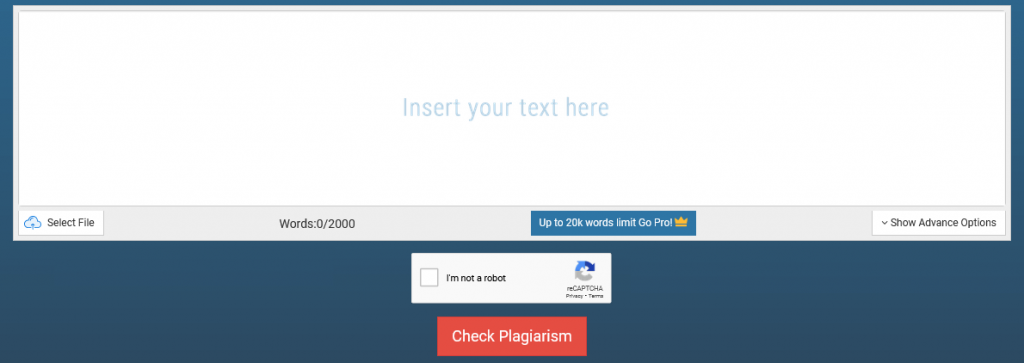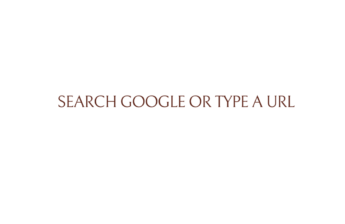Plagiarism can cause a lot of problems in any sort of writing. So, what are its effects on SEO content?
Plagiarism is an unethical procedure, yet it’s not difficult to find plagiarized content in the online world. Why is that? Because over 1.5 billion pages on the internet have copied content. So, how does this happen?
On top of that, how does it affect a website’s ranking? Does it ruin any SEO strategy if the content has plagiarism? Let’s find that out, including the way you can remove plagiarism.
Defining Plagiarism & Plagiarism Types
Plagiarism is the act of copying someone else’s work and passing it off as your own. It can also be defined as a breach of copyright law. It is a serious offense that can lead to severe penalties for the plagiarist.
To avoid this, it is important to properly cite any sources you use in your work. Mainly because plagiarism isn’t just using someone else’s words. In fact, it’s also about stealing ideas or other intellectual property without giving credit to the original author.
There are two main scenarios of plagiarism include:
- Intentional Plagiarism is when someone knowingly uses another person’s work and does not give them credit.
- Unintentional Plagiarism is when someone unintentionally uses another person’s work and does not give them credit.
The consequences for plagiarizing can be severe depending on the situation and how much was plagiarized. While these are the main scenarios, here are the three main types of plagiarism:
· Direct Plagiarism
Direct plagiarism is when a writer copies the entire work of another author. This means copying everything word-by-word without any due credit whatsoever. It is a punishable offense to copy content word-for-word or to paraphrase it in a way that is too close to the original.
· Mosaic Plagiarism
Mosaic plagiarism is a form of plagiarism that has been increasingly infamous in recent years. It is defined as “the practice of assembling multiple pieces of writing to create a new text, which mimics the structure and content of the original.” Thus, it’s also the most unethical type.
The term “mosaic plagiarism” was first used by Professor Patrick M. Scanlon from the University of Maryland, College Park, in 2006. The term was coined to describe a particular type of plagiarism that is more difficult to detect than traditional types.
Mainly because it does not contain any identical sentences or paragraphs from the original work. However, it includes paraphrasing, summaries, and other paraphrase-like features, all copied from different sources (Scanlon).
· Accidental Plagiarism
Accidental plagiarism is when a writer copies another writer’s idea but doesn’t give them credit accidentally. Or, it could simply be caused by incidental usage of the same words. However, the necessity to avoid it is just the same.
4 Effects Of Plagiarism On A Website or Blog
Plagiarism can have long-standing effects on a website or blog. There are websites that don’t see any ranks on Google, simply because they complained of duplicate or plagiarized content in them.
So, to help you understand the importance of avoiding plagiarism, here are the four effects it has on your SEO ranking:
1. Plagiarism Ruins Audience’s Trust
If an audience trusts a brand or business, then it’ll pick it over other websites every time. However, suppose a website features plagiarized content. In that case, a ruined reputation will cause the audience to pick it a lot less. In other words:
- Plagiarism will ruin your audience’s trust.
- It’ll cause them to avoid you in the search engine ranks.
- Garnering no clicks or traffic will cause Google to push your website further down on SERP.
Therefore, once a website falls from grace, so do its rankings. And it ends up losing the trust of its target audience.
2. Search Engine Crawlers Know It
Search engine crawlers will know if a website is mistrusted or isn’t as credible. While these crawlers aren’t necessarily capable of detecting plagiarism, they do understand a few things, such as:
- The number of backlinks a website has usually indicates other websites’ trust in the domain.
- The number of audience clicks and stays on the website (retention rates).
- If there are any formal or informal complaints against the website.
These problems usually occur when a website is using plagiarized content. Therefore, search engine crawlers will know it and refrain from indexing it for specific search results.
3. Google Won’t Come Close To Plagiarized Text
Google has no patience for plagiarism or duplicate content. However, Google also ensures that people know that there are multiple types of plagiarized content they should avoid. In their guidelines, Google basically tells us to:
- Avoid plagiarism from within and outside of your domain.
- Try to avoid duplicate pages (technical SEO aspect).
- Avoid writing similar content (which increases the chance of plagiarism).
Therefore, it’s not only important to avoid plagiarism; it’s a necessity in today’s world. Thus, Google doesn’t come close to any website that doesn’t follow these rules.
4. Worst Case Scenario: Get Penalized By Google
Google doesn’t necessarily penalize or ban any website for a specific reason. At worst, it’ll push your ranks back to the bottom of the funnel. However, if plagiarism is a constant occurrence on your website, then it might just penalize your website.
However, in order for that to happen, another website or the rightful owner of the plagiarized content will have to launch a complaint against your website. In turn, it’ll cause your website to be blacklisted from Google’s searches.
How To Avoid Plagiarism
Avoiding plagiarism is a three-step basic procedure. To help you understand, here it is:
1. Use A Plagiarism Checker
The first thing you’ll need is a viable plagiarism checker, like this one from Check-Plagiarism.com:

So, use this one or any other plagiarism checker that offers at least 1,000 words (this one offers a 2,000-word limit). On top of that, something that allows you to explore the percentage of plagiarism and find the link to the original source.
2. Rewrite Plagiarize Content
The next step is to rewrite the plagiarized text. Now, you can use a paraphrasing tool or do it manually. If you do, make sure you do it right, such as:
- Rewrite using your own words.
- Avoid using the same phrases or keywords as the original text.
- Rephrase the commonly used terms in the original content.
This will help you rewrite the text into something original and allow you to avoid plagiarism.
3. Cite The Source
While the aforementioned way of rewriting will avoid plagiarism, there’s still one more important thing to do; accredit the original author. So, once you’re done with the rewrite, cite the source to ensure that you avoid plagiarism effectively.
Conclusion
Hope this guide helps you understand the problems plagiarism can cause your website. And it should also help you find and remove plagiarism from your writing.







